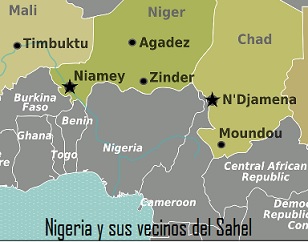June 11.– "There is only one thing, which gathers people into seditious commotion, and that is oppression,” once wrote an English philosopher, John Locke. Once again, as the country marks ‘Democracy Day’ on Saturday, June 12th, the malignant ghost of the criminal annulment, 28 years ago, of the presidential election hovers over the land. In the struggle that followed the abrupt voiding of the result by the military dictator, Ibrahim Babangida, hundreds of innocent people were killed, and media houses proscribed. It was, really, an ugly time for the country.
oppression,” once wrote an English philosopher, John Locke. Once again, as the country marks ‘Democracy Day’ on Saturday, June 12th, the malignant ghost of the criminal annulment, 28 years ago, of the presidential election hovers over the land. In the struggle that followed the abrupt voiding of the result by the military dictator, Ibrahim Babangida, hundreds of innocent people were killed, and media houses proscribed. It was, really, an ugly time for the country.
Yet, almost three decades down the road, Nigeria’s rulers, like the Bourbons, appear to “have learned nothing and forgotten nothing.” Instead of the promised bright summer of liberty, unity and prosperity built around the June 12, 1993 election, anger, division, despair, and insecurity are palpably evident now. Chosen only last year as Democracy Day, June 12 will be celebrated amid mass discontent, devoid of the great hope of inclusive, participatory democracy that the election signposted.
Divided as never before in its history, the country is unsafe, wracked by rampant banditry and armed robbery, terrorism, ethnic strife, and random violence. Civil rule has delivered flawed elections, thrown up terrible leaders, ruined the economy and impoverished the majority. Instead of national cohesion, exclusion and alienation prevail, cleavages have widened, and mutual antagonism has seen ethnic nationalities shift gear to a war footing. The values of June 12 have all but vanished, replaced by the divisive forces unleashed by the annulment and its aftermath.
As expected, protests are planned across the country and abroad to assail poor governance and to canvass a radical restructuring or an outright disintegration of the political contraption as a solution to the lingering violence. Typically, the regime of Major General Muhammadu Buhari (retd.), has responded to both tendencies with threats, reflecting the widening chasm between the leadership and the governed.
(...)
[ Full text ]
Comments powered by CComment